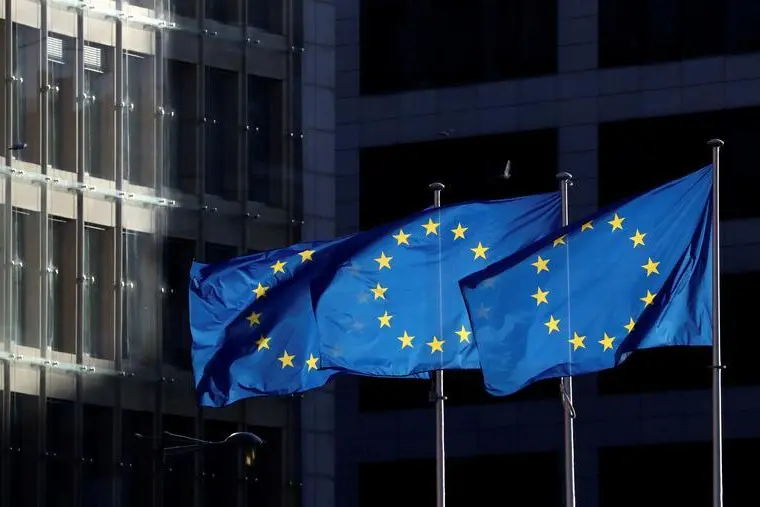PHOTO
BRUSSELS - European Union governments were expected to adopt a negotiating mandate on Tuesday for the tricky task of reaching a deal with Britain on future ties after it left the bloc last month.
The EU mandate aims to offer Britain, which sells 45% of exports and buys 53% of imports from the 27-nation bloc, no tariffs and no quotas in the future.
In exchange, it wants London not to undercut European companies with lower - and therefore less costly - environmental, labour, tax and state aid standards.
But Britain does not want such a commitment, stressing its "primary objective in the negotiations is ... economic and political independence". It is ready to accept tariffs and quotas similar to a deal the bloc has with Canada.
"We can have an agreement with zero tariffs and zero quotas if we can be sure ... we will have common norms ...regulatory proximity on the basis of EU rules," France's Europe Minister Amelie de Montchalin told reporters on entering the meeting with colleagues from the bloc in Brussels.
"If we cannot maintain this regulatory proximity, then we must ... apply tariffs or quotas," she said. "It's not a position of revenge, it's an economically rational position."
Britain will publish its own negotiating stance on Thursday and talks are to start next week. Both sides want a deal by the end of the year, when Britain's transition period ends.
"This is an extremely ambitious timetable," German Europe Minister Michael Roth said.
Without a trade deal, business contacts would be based on World Trade Organisation rules, which assume tariffs, quotas and cumbersome paperwork.
"Fisheries are important but also our trade relations, security, people-to-people contacts, and that makes the negotiations so challenging," said Dutch Foreign Minister Stef Blok.
"The time pressure is immense, the interests are huge, it's a very complicated treaty, so it will be very hard work."
The agreed text of the EU negotiating mandate, which diplomats said the ministers would ratify on Tuesday, says any new trade treaty between the EU and Britain "should prevent distortions of trade and unfair competitive advantages so as to ensure a sustainable and long-lasting relationship".
"The envisaged agreement should uphold common high standards, and corresponding high standards over time with (European) Union standards as reference point," says the document, seen by Reuters.
(Reporting by Jan Strupczewski and Marine Strauss; Editing by Andrew Cawthorne) ((jan.strupczewski@thomsonreuters.com; +32 2 287 68 37; Reuters Messaging: jan.strupczewski.reuters.com@reuters.net))





















